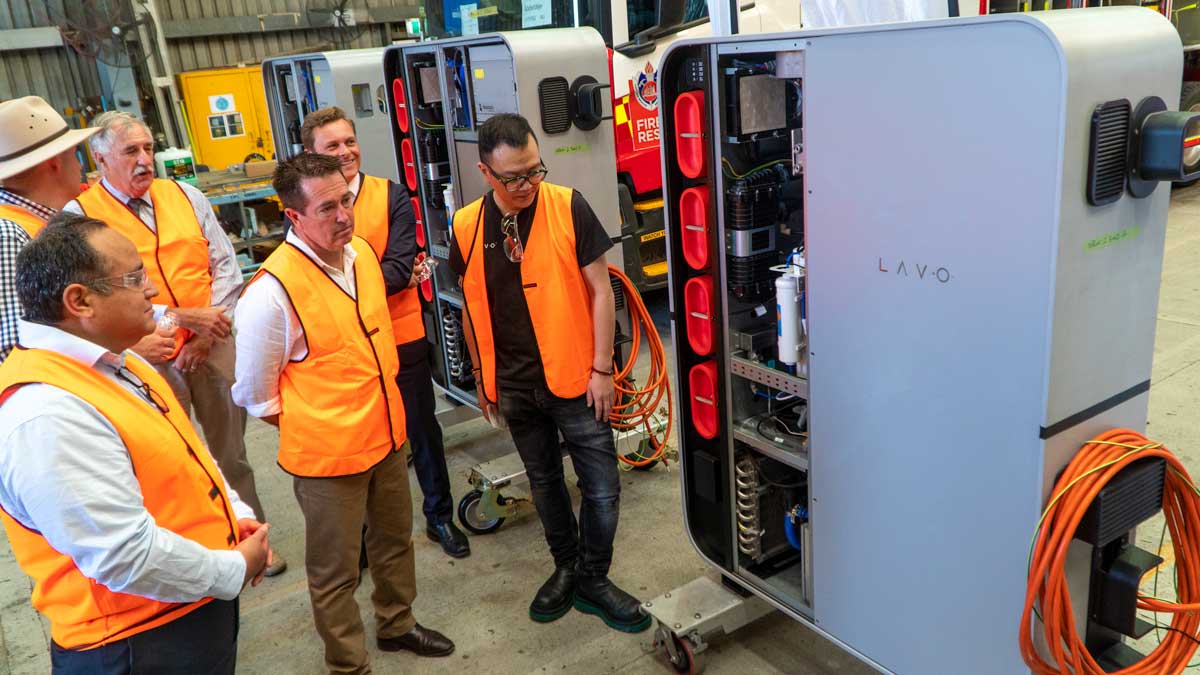The UK government will fund a demonstration of an Australian invented hydrogen energy storage technology as part of an effort to reduce its dependence on fossil fuels – which have recently been the subject of massive price spikes and shortages.
Engineering services consultancy GHD has been awarded £141,000 (A$265,000) from the UK government’s Department for Business Energy and Industrial Strategy to trial the Lavo technology that stores excess electricity as hydrogen.
The technology demonstration project will be hosted by the University of Chester and will use the hydrogen storage device produced by Lavo, a spin-off from the University of New South Wales.
The Lavo energy storage device, which uses hydrogen to store energy in a similar way to a conventional battery system, was initially invented by researchers at the University of New South Wales.
GHD will deploy Lavo’s modular HEOS unit, which uses electrolysis to convert electricity into hydrogen, and then converts the hydrogen back to electricity via a fuel cell, as needed.
UNSW researchers developed an innovative metal hydride material that had the ability to efficiently and safely store hydrogen, such that the Lavo device can be deployed in residential and business settings.
The current cost of the Lavo system is around $30,000 per unit, with each unit providing 40kWh of energy storage and a peak power output of 5kW. The modular nature of the unit allows for multiple units to be grouped together to provide greater levels of storage.
GHD project manager Tej Gidda said the project would serve as an important demonstration of new technologies providing longer forms of energy storage.
“GHD is committed to supporting the emergence of a hydrogen economy, to enable a future of reliable, secure and affordable low-carbon energy,” Gidda said.
Lavo recently secured a $5 million grant from the NSW government to help establish manufacturing facilities in Newcastle as the company prepares to ramp up the commercialisation of the innovative technology.
UK energy and climate change minister Greg Hands said the development of new energy storage technologies formed back of its strategy for reducing its dependence on “volatile” fossil fuels.
“It will allow us to extract the full benefit from our home-grown renewable energy sources, drive down costs and end our reliance on volatile and expensive fossil fuels,” Hands said.
“Through this competition, we are making sure the country’s most innovative scientists and thinkers have our backing to make this ambition a reality.”










